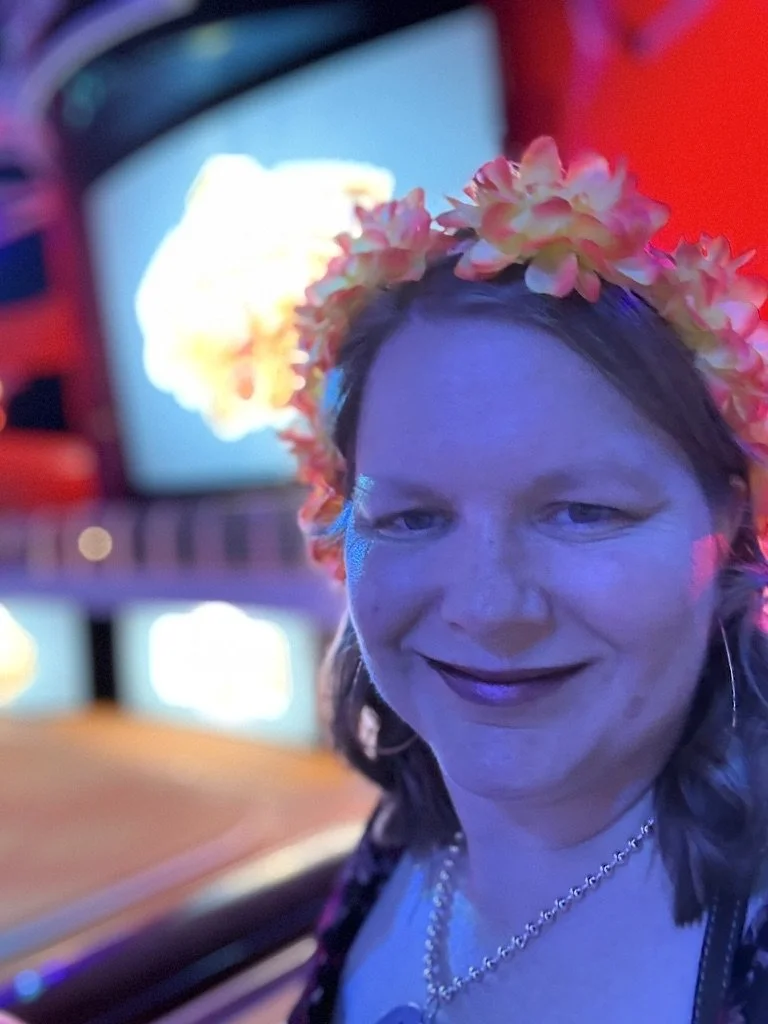In November 2017, we focused on increasing positive interactions in our relationships and decreasing negatives. For December, we are going to take that one step further and focus on play. The December Play Challenge means that we are going to make time for regular play and to look for different ways to play individually (both adults and children) and as a family. As Stuart Brown said in his TED talk in March 2009, “I would encourage you all to engage—not in the work-play differential where you set aside time to play—but where your life becomes infused minute-by-minute, hour-by-hour with body, object, social, fantasy, transformational kinds of play, and I think you will have a better and more empowered life.” Posts will be added throughout December, so come back frequently to see what's new. Let’s play!
A tool for remembering to increase positives
I found an app called “Lasting.” It is not by the Gottman Institute, but they say it is research tested strategies. I haven’t paid for the app, but by creating an account and doing the assessment it let me use their reminders. So multiple times a day, the app reminds me to check in with my hubby with fondness, affection, gratitude, etc. So far even without paying for the best of the content, this app is having a positive impact on my marriage. Check it out.
The importance of repair
“Even in relationships that are working well and in families that are working well, there’s a lot of mistakes that people make, and people sort of stumble through life together. And one of the most important things that psychologists have discovered about parenting and also about couples’ relationships is that the most important thing is repair, because everybody messes up in relationships. So... communication is not really about being perfect. It’s really about noticing that you’re not perfect—that you’re really messing up and trying to make it better... In very good relationships, people don’t communicate perfectly. They don’t say things the right way. They’re not really always in a good mood. They’re not really always emotionally available. But they can talk about it and they fix it.” (Source: presentation by Dr. John Gottman)
Vulnerability and repair
As I reflect on increasing the 5:1 ratio in my life, I find myself really drawn to Brené Brown's audiobook "The Power of Vulnerability" (on the iBooks store) because it is helping me to deal with the struggle of trying to increase positives and decrease negatives in my relationships while being real that I'm not perfect and I'm not going to do it perfectly.
Gratitude
I use this app to regularly focus on what I am thankful for.
I’m really thankful for each of you that reads my blog and for the opportunity to work toward my dreams of supporting families to know, love, and motivate one another towards joy and connection and health.
Our emotional positivity ratio
An alternate perspective on the 5:1 ratio
Applying the ratio with our kids
Small, intentional moments
"Small, intentional moments hold more weight than isolated, extravagant gestures when it comes to building emotional longevity in your relationship."
The positive perspective
Struggling with the terrible 2's?
When we have.more information about what to expect at different ages, it can help us to be more positive with our children.
Check out these videos from Project ABC on dealing with difficult behavior in young children.
An Attitude of Gratitude and the 5:1 Ratio During the Holidays
"The perspective and practice of gratitude is essential to strengthening our relationships with those we love."
Why the 5:1 ratio? And how can we get there?
Thinking of you: Another 5:1 Ratio Tool
Adding more positives to our relationships can be as simple as just saying "I'm thinking of you".
Benefits of gratitude
The 5:1 Ratio Challenge: Vulnerability
I feel like you can't have a discussion on becoming more positive without including vulnerability in the mix.
Making gratitude a ritual is a great way to increase the 5:1 ratio in our lives
Dr. Gottman speaks on the 5:1 ratio
Take the November 5:1 Ratio Challenge!
Research by The Gottman Institute shows that families thrive when there are 5 times more positives than negatives in our emotional bank accounts. Join me in taking the 5:1 ratio challenge to increase the number of positives in our relationships and to decrease the number of negatives. What tools do we have in our toolboxes to do this? What are some things that you do that fill your family’s emotional bank accounts?
November 2017 Challenge: The 5:1 Ratio
https://mailchi.mp/c5a5f3c6212a/join-the-november-51-ratio-challenge






